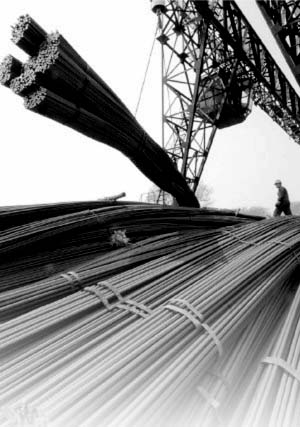Japan's steel market is unstable after the earthquake
The strong earthquake that took place in Japan on March 11, 2011 has caused strong concern in the world. The earthquake disaster caused tremendous human and material losses to Japan. As the world's major steel exporter, this strong earthquake has caused Japan's steel market to suffer heavy losses. Japan's five largest steel companies: Nippon Steel, JFE, Sumitomo Metal, Tokyo Steel, and Kobe Steel have all suffered damage. It is reported that the major steel companies in Japan are currently resuming production and trying to minimize the impact of the disaster.
Mineral price appears "free fall"
Iron ore is also one of the main supporting forces of steel enterprises. As one of the countries with the largest import of iron ore, the suffering of Japanese steel enterprises has directly led to a direct decline in the market price of ore. The spot price of iron ore fell to US$170/tonne in just two trading days and plummeted by 14%, leaving base metal investors gloating. The direct drop in the mining market and unstable market conditions have caused the market mentality to be impaired. Most miners have switched from being “good-for-sale mentality†to “continuous wait-and-seeâ€. The oversupply of the iron ore market is bound to accelerate the fall in the spot price of iron ore.
Asian steel market may be affected
Japan’s steel output is among the highest in the world. Nearly half of steel is exported, and 82% is in Asian markets. The main export destinations are Korea, China, and other parts of Asia. After the earthquake, Japanese steel companies may suspend production for six months. The recovery will inevitably greatly reduce steel production and exports. The demand for steel will increase. As a result, Japan’s steel exports will be gapped and due to post-disaster reconstruction work. Japan’s own steel supply demand will continue to increase. The shortage of steel will allow Japan to consider importing steel from neighboring Asian countries, thereby stimulating steel exports from neighboring countries. It is expected that steel prices in Asia will continue to rise in the future.
The sound of China's steel market
Yesterday, major domestic steel mills represented by domestic Baosteel and Anshan Iron & Steel said: “We are closely monitoring the damage suffered by Japanese steel mills in the earthquake and the impact on the global steel marketâ€.
The earthquake in Japan will affect the import of China's steel products, which will inevitably create a gap for the industries that have previously relied on imports in the country. In particular, the demand for high-end steel products will increase. Japanese steel companies' export varieties are mainly concentrated in pillar industries, such as: construction industry, automobile industry, shipbuilding industry, etc., belonging to high-end steel products. There is no doubt that this time the Japanese steel market was severely damaged. It is not a small challenge to the Asian steel companies represented by China, but also a good opportunity to increase their own production capacity and output. 
PE pipe toughness and low cost, make it become the best choice. PE pipe have unique corrosion resistance, can be used in industrial wastewater, sewage discharged pipe,low costs and maintenance costs . PE pipe has high resistance to stress and wear resistance, can be widely applied in conveying ore, coal ash and river bait-casting mud. PE pipe inside sleek, great flow, cross road construction, good impact resistance, it is the ideal tool for agricultural irrigation.
HDPE Drainage Pipe,HDPE Plastic Drainage Pipe,Double Wall HDPE Drainage Pipe,Underground HDPE Drainage Pipe
BAODING LIDA PLASTIC INDUSTRY CO., LTD. , http://www.ldsyplastic.com
